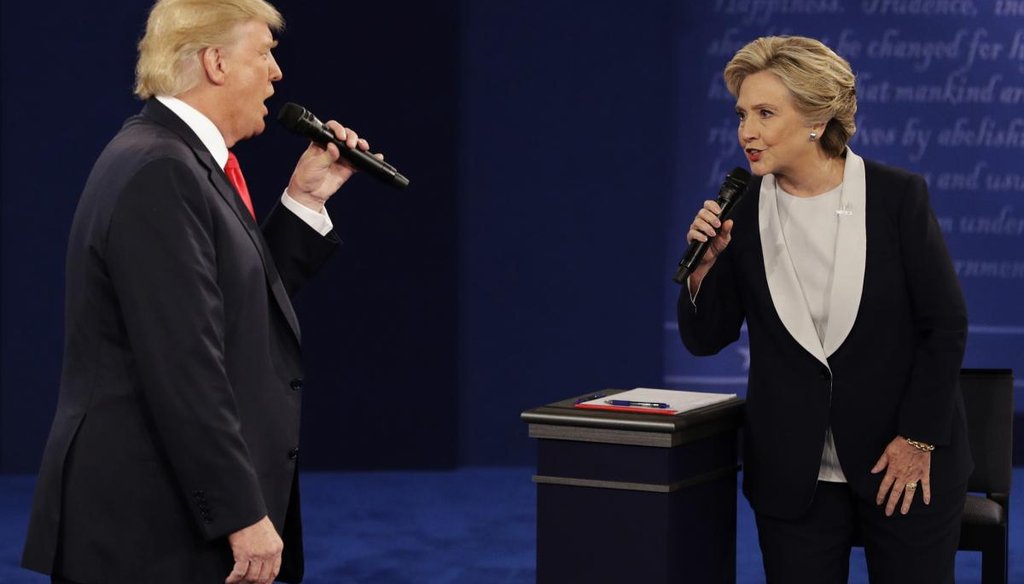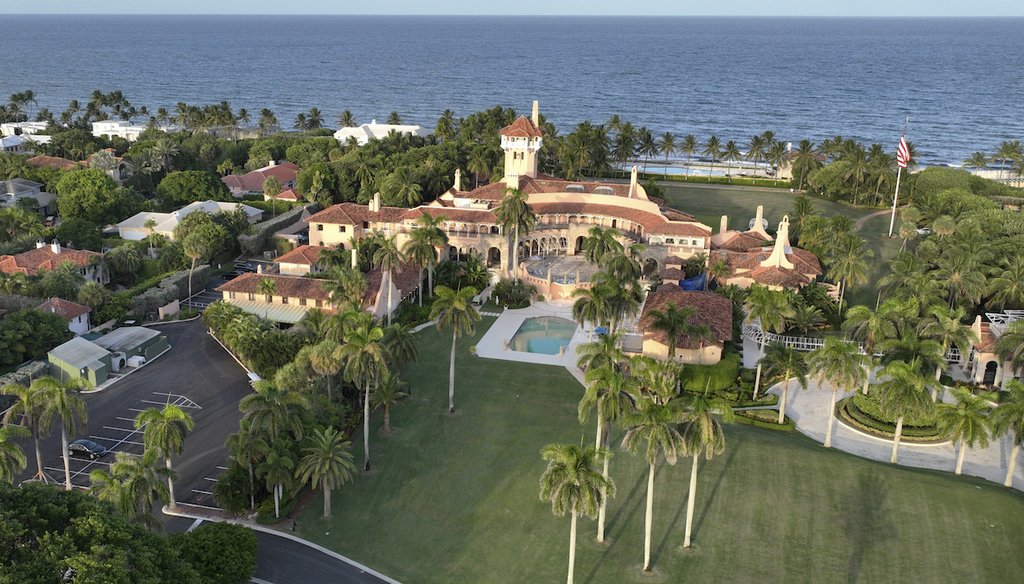Sixties Fan
Diamond Member
- Mar 6, 2017
- 53,525
- 10,409
- 2,140
Maybe TRUMP used the same security protocols Hillary used to set up a personal server, well except unlike Hillary TRUMP had the authority to declassify materials.
IF YOUR TIME IS SHORT
- The National Archives in February said it had recovered 15 boxes of presidential records that former President Donald Trump had taken to his home in Mar-a-Lago. This was a breach of the Presidential Records Act.
- Some of the documents were marked classified national security.
- Hillary Clinton used a private email address for exchanges with her State Department staff. In three instances, email chains included information with ambiguous classification markings.
Clinton’s emails
Clinton’s email troubles started in 2014, when the House Select Committee on Benghaziasked the State Department for all of her emails. The department didn’t have them all because, instead of only using the State Department email system (with an email address ending in @state.gov), Clinton used a personal email address (@clintonemail.com) housed on private servers located in her Chappaqua, New York, home.
In 2014, Clinton’s lawyers combed through the private server and turned over about 30,000 work-related emails to the State Department and deleted the rest, which Clinton said involved personal matters, such as her daughter’s wedding plans.
Clinton repeatedly said she did not have any classified emails on her server, but the results of an FBI investigation found otherwise.
Of the tens of thousands of emails investigators reviewed, 113 contained classified information, and three of those had classification markers. Former FBI Director James Comey said in 2016 that Clinton should have known that some of the 113 were classified, but others she might have understandably missed. In a sign of the uncertainty around classification, in 2018, a Justice Department report found that the classification markings were not clear.
Ultimately, Clinton paid a political, not a legal, price for her email practices. Republicans wielded the episode against her as proof that she was untrustworthy. Trump said she was "guilty as hell" and often raised the specter of what the roughly 30,000 personal emails she deleted might have contained. House Republican leader Kevin McCarthy said she showed a "fundamental lack of judgment and wanton disregard" for matters of national security.
The FBI issued its findings in July 2016. Broadly, it said classified information had been improperly transmitted, but carelessness, not an intent to skirt the law, was the cause. The issue began to fade, but it resurfaced at the end of October 2016, right before the election. Many believe that in a razor-thin election, that timing torpedoed her campaign.




